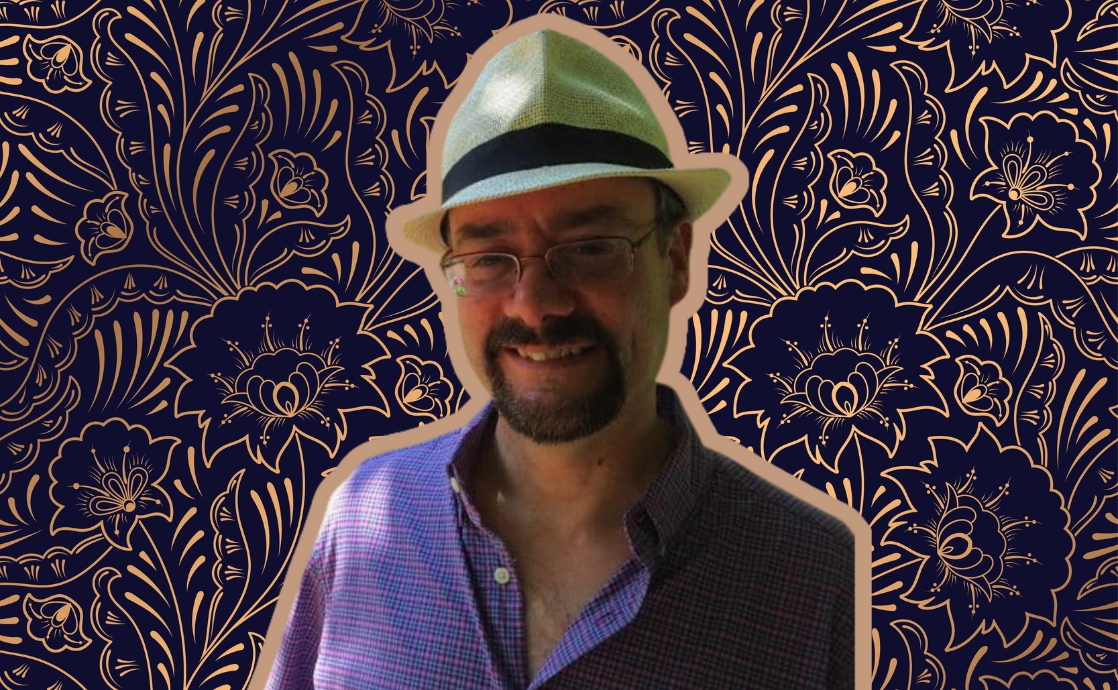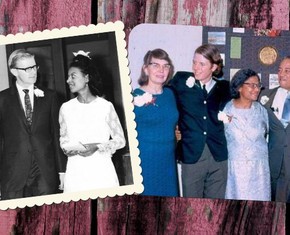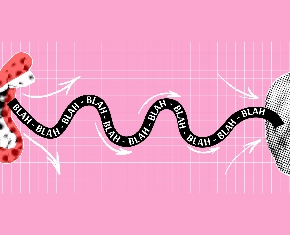The views expressed in our content reflect individual perspectives and do not represent the authoritative views of the Baha'i Faith.
In the 1970s a friend introduced me to an ardent spiritual seeker, a teenager named Frank Lewis who was investigating the Baha’i Faith. Frank had questions my friend asked me to help answer.
We got together to talk. A high school student at the time, Frank’s slight frame and gentle face held a set of intensely curious eyes. He asked his questions, and their depth and fervency delighted me, because they weren’t about facts or principles or history – instead, Frank had a deep desire to know more about the mystical teachings Baha’u’llah brought.
Together, we sat down at his mother’s dining room table, then read through and studied two brief volumes of mystical insight written by Baha’u’llah – The Hidden Words, and a small volume comprising two of Baha’u’llah’s mystical tablets, The Seven Valleys and The Four Valleys.
I remember Frank’s reaction when we first read this passage from The Seven Valleys together:
By My life, O friend! Wert thou to taste the fruits of these verdant trees that spring from the soil of true understanding, once the effulgent light of His Essence hath been reflected in the Mirrors of His names and attributes yearning would seize the reins of patience and restraint from out thy hand and stir thy spirit into commotion with the splendors of His light. It would draw thee from this abode of dust unto thy true and heavenly habitation in the midmost heart of mystic knowledge, and raise thee to a station wherein thou wilt soar in the air even as thou treadest upon the earth, and wilt walk upon the water even as thou movest over the land.

Frank literally leapt out of his chair. “That’s it!” he said. His face seemed lit from inside.
“What?” I asked him. Because he was normally so quiet and reserved, his enthusiasm shocked me.
“That’s what I want! Yearning, light!”
This passage from Baha’u’llah, along with several others we read during those days, produced a robust reaction in my new young friend that took me completely by surprise. Truly, his yearning had seized “the reins of patience and restraint,” stirring his whole spirit. After tasting those fruits, he wanted more, much more. I have only met a few people in my 50+ years as a Baha’i who immediately responded to Baha’u’llah’s mystical teachings the way Frank did – as if someone had set a match to his soul and lit it afire.
I’m saddened to report that Franklin D. Lewis, much, much too young in his early 60s, has left this world. He died on September 19th, 2022, taken by a pernicious cancer, and is survived by his wife and two daughters. Frank, the kind of friend who leaves a giant hole in your existence by his absence, the kind of person you meet and never forget, the kind of highly-evolved human being we all want to be, has soared into the sea of light.
With his passing the world lost a great mind and a greater human being. A dedicated, self-effacing, justice-seeking, and learned Baha’i, a soulful poet, and a brilliant scholar with an international reputation for insight and wisdom, my friend Frank epitomized this passage from Baha’u’llah: “The man of consummate learning and the sage endowed with penetrating wisdom are the two eyes to the body of mankind.”
Frank’s two eyes read the Baha’i revelation and saw soulful rapture. He fell absolutely in love with Baha’u’llah’s new Faith. As Abdu’l-Baha wrote in The Secret of Divine Civilization:
God has given us eyes, that we may look about us at the world, and lay hold of whatsoever will further civilization and the arts of living. He has given us ears, that we may hear and profit by the wisdom of scholars and philosophers and arise to promote and practice it.
After graduation, Frank went from his home in Southern California to UC Berkeley, where he began to marry his love for the Baha’i teachings with his burning desire to know more. There, he learned the lyrical original languages of the Baha’i revelation – Persian and Arabic – and immersed himself in scholarly pursuits that would give him a better intellectual understanding of what his heart reacted to so strongly. He told me that he wanted to unite his mind and his soul.
Frank’s study of Persian and the poetic traditions in Persian literature continued after he graduated from Berkeley, and he went to the University of Chicago for his doctorate. Once he finished his Ph.D., wrote a dazzling dissertation and lectured for a few years, he moved to Atlanta, Georgia to teach Persian literature and poetry at Emory University. Eight years later he returned to his alma mater, the University of Chicago, as a tenured professor, where he taught, influenced, and mentored an entire new generation of scholars eager to inhale the same divine fragrances he had first sensed. At the end of his life, Frank was the chair of the Department of Near Eastern Languages and Civilizations at the University of Chicago, and the esteemed author of many books, articles, poems, and essays. But his academic honors and achievements didn’t define Frank – what defined him was his character.
Gentle, selfless, humble, slyly funny, friendly, Frank imbibed the mystical messages of Baha’u’llah, along with his profound understanding of poets like Rumi and Sa’di, and transferred them to his own soul. He didn’t just study the mystics – he inhaled their essence and became one himself. He always wore a hat. I believe that Frank had so steeped himself in poetry and mystical vision that he thought in either free verse or iambic pentameter. He laughed from his gut, with his mouth wide open. He saw the world the way we’d all like it to become – as a peaceful, harmonious, and unified place filled with beauty and joy and song. He led his life in the gentlest possible way. Just being in his presence could give you a sense of calm transcendence.
I’ll cite just a portion of one of the many tributes to Frank’s spiritual attributes – this from Paul Losensky, now a Professor of Comparative Literature in the Central Eurasian Studies department at the Hamilton Lugar School of Indiana University:
Frank was a gentleman in every sense of the word. Unfailingly polite, he spoke with quiet, measured deliberation, yet his keen wit and ready smile quickly dispelled any suspicion of aloofness. He wore his learning lightly and radiated good will to all. We have lost not only a talented scholar but a humane and gentle soul. Our sincere condolences go out to his family and to his many friends and colleagues. Frank, you will be missed, brother.
In his vast knowledge and in his wise application of it to his own inner self, Frank exemplified the word “scholar,” as this passage from the Universal House of Justice elucidates:
Scholarship has a high station in the Baha’i teachings, and Baha’i scholars have a great responsibility to a growing, divinely-guided world society. The ascertainment of truth and the acquisition of a fuller understanding of the subjects of their scholarship are worthy and high endeavors.
Among his many lasting contributions to literature and translation and poesy, Frank left us all a landmark book: Rumi: Past and Present, East and West. The Life and Teachings of Jalāl al-Din Rumi. If you’ve ever marveled at the beauty and insight of a Rumi poem, his book, which includes Frank’s gorgeous, insightful new translations of Rumi’s finest work, will tell you much of what you’ve ever wanted to know about Rumi, about poetry itself, about the numinous light of the soul. The book has become a classic, translated into many languages and cited by scholars from around the world.
In Rumi: Past and Present, East and West, Frank wrote a passage that traced his own spiritual path:
… the seeker of God must die to self before he can shine with the divine light. Dying to self, or even slaying the self … includes learning to accede to God’s will, putting out the fires of the ego, training the carnal self and the concupiscent soul. When these veils of self are lifted, the divine light of the soul shines through; when burnished of all its rust, the mirror of the soul perfectly reflects the attributes of God.
Then Frank cited Rumi, who wrote:
The seeker of the Court of God’s like this:
When God appears, the seeker fades away
Yes, this encounter brings eternal life
But before undying life effacement comes
Frank, my dear friend, I’m envious – you’ve ascended into that eternal life in the next world and can now directly imbibe the spiritual sustenance you’ve so eagerly sought for all these years. Here on this temporal plane we’ll miss you intensely, but oh, the wonders your soul must be seeing.
















Comments
Sign in or create an account
Continue with Googleor